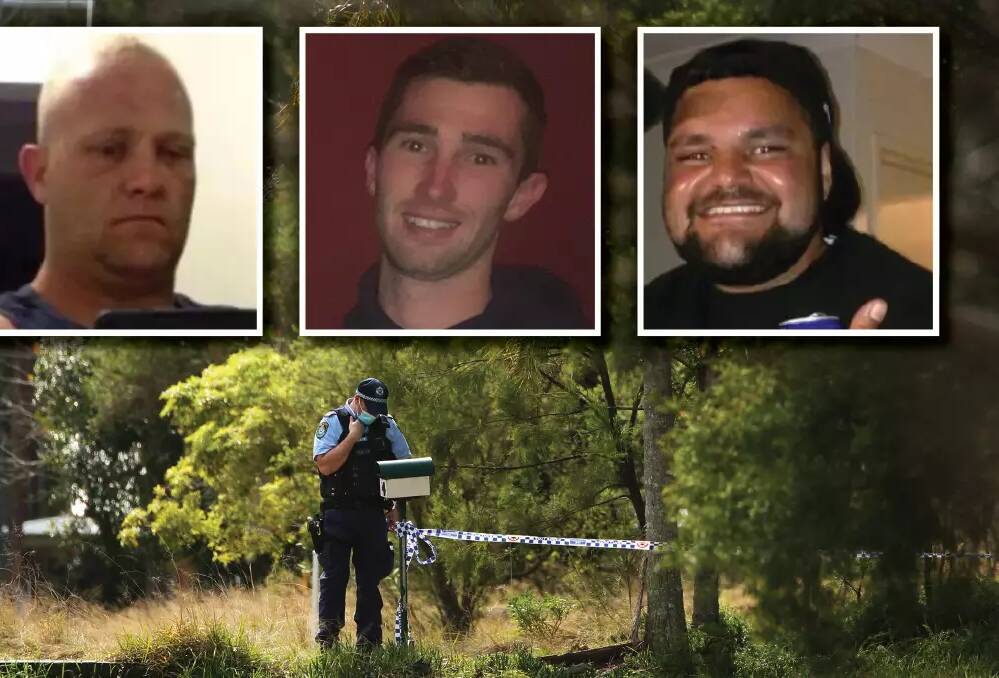
WHEN prosecutors preparing their case against the men accused of murdering drug dealer David King stumbled upon a video stored on a woman's mobile phone they must have thought they'd hit the jackpot.
Here was evidence of the girlfriend of accused killer, Elijah Cage, armed with the shotgun the night before Cage and his mate Max Lowcock used it to gun down Mr King during a "drug rip gone wrong" at Salt Ash.
It would become an important strand in the prosecution's case and, they said, helped establish that it was the men who were armed with the loaded firearm during the drug deal in Hideaway Drive and had planned to rob Mr King before he fled and was shot in the back of the head.
But by the time the woman had finished giving her evidence during the murder trial in Newcastle Supreme Court, prosecutors might have wished they'd never found that video.
The video quickly became the crucial piece of evidence in the trial, capable of swinging the case.
Depending on who you believed the short clip either bolstered the case against the men or provided an alternative hypothesis for the defence.
The woman, Dakota Clarke, the then girlfriend of Cage, did not give a statement to police and the first time anyone heard her version was during a voir dire - a preliminary examination of a witness without a jury - when she said something no one was expecting.
The gun, the one she was filmed holding on the night before the murder, belonged to Mr King, the victim, and not her boyfriend or any of his friends accused of the murder, Ms Clarke said.
She claimed she was buying drugs off Mr King at Mayfield, asked him if she could hold the gun to film a video - calling it a "Kodak moment" - and then gave it back to him before they went their separate ways.
During her summing up, Justice Dina Yehia called it an "essential fact", telling the jury that if the prosecution had not excluded the possibility that the firearm was Mr King's then their case must fail and the men must be acquitted of murder.
"Think about that scenario where David King brought a loaded gun to what was happening," Mr Shaw said. "Wouldn't he have gotten out of his car and told them all to bugger off."
But defence barristers for Cage and Lowcock told the jury the woman should be believed and it made sense that Mr King was the one armed with the gun.
"It is clear on the evidence that Mr King had involved himself in the supply of drugs at a fairly significant level and... things for him were spiralling in the last few weeks before August 29," defence barrister Leah Rowan said. "You might want to consider whether David King had armed himself with a sawn-off shotgun. It is Mr King whose state of mind leading up that date most lends itself to the fact that he would be in possession of a gun."
Their verdicts must mean they found the pair had planned to rob Mr King and brought the loaded firearm with them to the drug deal at Salt Ash.
And then, after Mr King had handed over drugs and cash and tried to flee, racing down Hideaway Drive, the jury must have found that Lowcock had slipped into the back seat armed with the sawn-off shotgun and shot Mr King in the back of the head.
Lowcock was guilty because he was the shooter, Cage because he had robbed Mr King, knew about the loaded gun and foresaw the possibility it would be used to kill their target.
The getaway driver, Tyson Stamp, had started the trial charged with murder but his barrister, Public Defender Peter Krisenthal, successfully applied for a directed verdict of not guilty at the conclusion of the prosecution case.
The trio were all acquitted of kidnapping the woman who set up the drug deal and witnessed the shooting, a jury finding she must have made up the allegation about being bundled into their car and driven from the scene.
Cage and Stamp had pleaded guilty to torching the hired Santa Fe used to flee the shooting and all three men will face a sentence hearing in Newcastle Supreme Court in May.
Ultimately, six weeks of evidence came down to the testimony of two women.
Ms Clarke - about the video and the gun - and the woman who set up the drug deal, witnessed the murder and then claimed she was kidnapped.
And, on the crucial charge of murder, the jury must have accepted one and not the other, finding that there was a robbery before Mr King was shot and that, in the immediate aftermath, Lowcock had jumped out of the back seat armed with the murder weapon.
The prosecution case was that it was a drug rip from the start and the pair used the woman to "open the door" and get Mr King to "let his guard down".
The jury were played intercepted phone calls from before the shooting, where Cage talked about finding someone to "mug" and "swapping rips" while mentioning "DK out at the Bay".
They weren't told the reason the listening device was already in place before the murder was because Cage was under investigation for drug supply.
And unfortunately for Mr King, who in 2018 was jailed for three years for his role in a Port Stephens drug supply syndicate, it was a decision he would make that would ultimately lead to his death.
Mr King was the one who suggested the two groups drive around into the much quieter Hideaway Drive to complete the transaction before Cage robbed him and Lowcock shot him.
Prosecutors got the convictions in the end, but it might have been made more difficult by the discovery of a video and the evidence of a woman about capturing her "Kodak moment".







